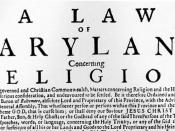Throughout India's very strong history there have been many powerful leaders. The strongest and most powerful rulers incorporated religious beliefs into political philosophies, and these beliefs helped fortify their respective empires, and keep the people united. This theory becomes clear when you see how two very prosperous emperors of India, Asoka and Akbar, included religious tolerance into their empires.
Asoka, because of religious tolerance, brought the Mauryan Empire to its greatest height after he united his people and made them content. A British writer and historian acknowledges his accomplishes, "Amidst the tens of thousands of names of monarchs that crowd the columns of history, their majesties and graciousness and serenities and royal highnesses and the like, the name of Asoka shines, and shines almost alone, a star." (Eyes Pg. 166) This shows most everyone sees that Asoka is a very prevailing and special emperor throughout the world's history, let alone India's.
The key reason that Asoka was able to bring his empire to such height was because he incorporated religious tolerance well as peacefulness into his daily rule. Asoka was not always a man of religious tolerance or peace. It wasn't until after the bloody war in Kalinga, where 100,000 soldiers were slain, that Asoka decided to rule peacefully. He soon adopted the idea of dhamma, a mix between Hindu dharma and Buddhism. It advocated compassion for humans as well as animals. Asoka had rock edicts built, which stressed this thought, and placed them in conspicuous locations for his subjects to see. One rock edict specifically showed his proposal for religious tolerance,
"The progress of the essential doctrine [Dhamma] takes many forms but its basis is the control of one's speech, so as not to extol [praise] one's own sect [belief] or disparage [criticize] another's.... All sects deserve reverence...



Good.
Very detailed analysis and thorough research...well done:D
0 out of 0 people found this comment useful.